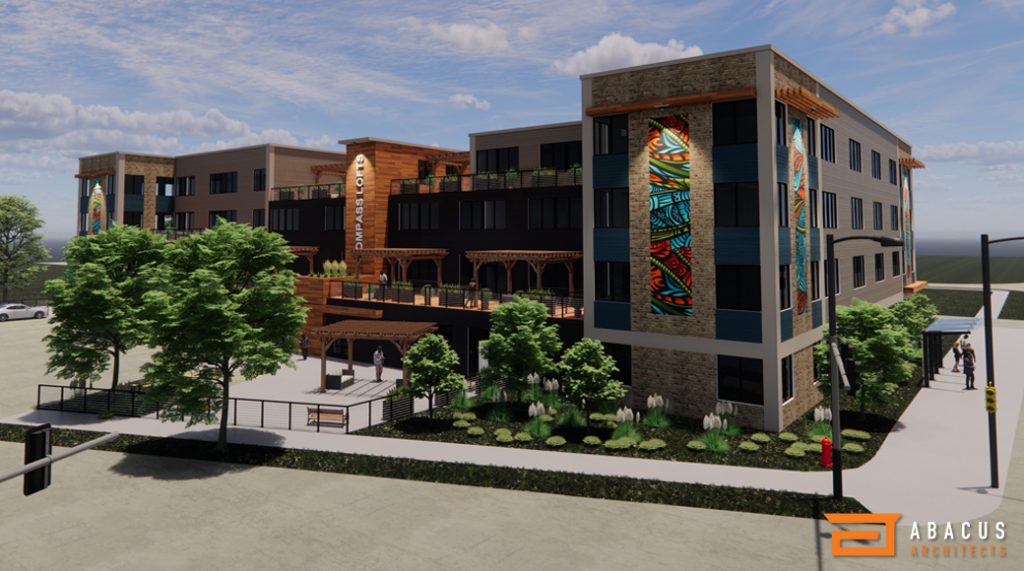Four Milwaukee Affordable Housing Proposals Secure Critical Tax Credits
WHEDA's housing tax credit award puts developments on path to groundbreaking.
Four proposed affordable housing developments secured pivotal low-income housing tax credits in an announcement Thursday from the Wisconsin Housing and Economic Development Authority (WHEDA).
Two of the winning proposals are located near the intersection of N. Martin Luther King Jr. Drive and W. Burleigh Street at the north end of the Harambee neighborhood. Another of the winning proposals, Historic Patterson Place, involves the redevelopment of a former Milwaukee Public Schools building at 4116 W. Silver Spring Dr. The fourth winner, Historic Mitchell Residences, involves new buildings being constructed just south of the intersection of S. 12th and W. Historic Mitchell streets.
The winning Milwaukee projects are among 23 developments statewide that secured credits from a pool of 40 applicants.
The credits are the most common tool used in Wisconsin to create federally-defined affordable housing, where rent costs do not exceed 30% of a household’s gross income. Receipt of the credits requires developers to set aside a pre-determined units at a discounted rate for those making no more than 60% (with few exceptions) of the area’s median income. The credits last for a period of at least 15 years, which is often extended to 30 years.
The winning projects include a total of 225 new affordable apartments. Statewide, the funding will support the creation of 1,383 affordable apartments. “Based on the average household size in Wisconsin of approximately two individuals, these tax credits will result in housing for over 3,270 people,” says the WHEDA press release.
“No matter where you are—whether it’s the Driftless Area or in the heart of our largest cities—the need for affordable housing continues to be one of the issues I hear most about as I travel across our state,” said Governor Tony Evers in a statement. “Key to addressing our state’s generational workforce challenges is making sure we are expanding access to reliable, affordable workforce housing across our state. I’m proud of our continued efforts to address these challenges and our partnership with WHEDA as we work to make sure our Wisconsin has the 21st-century infrastructure we need to meet the needs of a 21st-century workforce and economy.”
Winning a credit allocation serves as the key financing component for a development, but a groundbreaking is often still approximately two years away as development teams sell the credits to institutional investors, secure additional financing and finalize project designs.
The credits offer a dollar-for-dollar reduction on income tax bills. Depending on the program, the awards are made for up to 10 years, meaning a $1.2 million award turns into $12 million. In Milwaukee, the Department of City Development has increasingly supported the use of tax incremental financing districts, structured effectively as property tax rebates, to close remaining financing gaps. Developers often must pursue additional public financing sources to serve the lowest-income households.
“We are making tremendous strides toward providing access to affordable housing for all people in Wisconsin through programs like this,” said WHEDA CEO and Executive Director Elmer Moore, Jr. “Housing tax credits are one of our foundational tools to ensure that everyone in Wisconsin has a safe, affordable place to call home. Most housing units created by tax credits are reserved for income-eligible households for at least 30 years; the rest are available regardless of income.”
Developers in Milwaukee routinely cite that the tax-credit-supported apartments have a waiting list of prospective residents.
WHEDA scores projects on a point system according to the state agency’s “qualified allocation plan,” which incentivizes setting aside units for the lowest-income individuals, proximity to jobs and availability of supportive services. Two different grant programs exist. One provides a 9% federal tax credit and the other provides a 4% federal and 4% state income tax credit.
Two Milwaukee proposals were placed “on hold.”. A far north side development, Mason Temple Heights, was placed on hold, as was an acquisition-rehabilitation proposal on N. Martin Luther King Jr. Drive.
But being placed on hold does not mean a project is dead. While many developers do switch to pursue other proposals, the now-funded Historic Patterson Place project was rejected twice before being approved.
Five Milwaukee projects totaling 452 units were approved in 2023, part of a $32 million statewide award that backed 23 developments with more than 1,500 combined units.
Details on each of the proposals and links to additional coverage are included below.
Winning Projects
Compass Lofts
- Developer: Martin Luther King Economic Development Corporation, EA Development, One 5 Olive, KG Development
- Units: 67 (56 affordable)
- Type: New Construction – Nonprofit – Family
- Credit Request: $1.4 million
- Program: 9% Federal
- Location: 3116 N. Martin Luther King Jr. Dr.
- Learn more
Historic Mitchell Residences
- Developer: Cinnaire Solutions, BBE Investments and Development
- Units: 59 (59 affordable)
- Type: New Construction – Family
- Credit Request: $1.19 million
- Program: 9% Federal
- Location: 1718-1734 S. 12th St.
- Learn more
Historic Patterson Place
- Developer: Wisconsin Redevelopment, AndersonWebb
- Units: 48 (40 affordable)
- Type: Adaptive Reuse/New Construction – Family
- Credit Request: $1.33 million
- Program: 9% Federal
- Location: 4116 W. Silver Spring Dr.
- Learn more
Union at Rose Park
- Developer: The Annex Management Group
- Units: 75 (70 affordable)
- Type: New Construction – Family
- Credit Request: $902,185 Federal, $676,634 State
- Program: 4% Federal, 4% State
- Location: 3030 N. Martin Luther King Jr. Dr.
Other Bidders
Mason Temple Heights
- Status: On Hold
- Developer: Trinity Development Partners
- Units: 40 (33 affordable)
- Type: New Construction – Family
- Credit Request: $872,463
- Program: 9% Federal
- Location: 6090 N. 35th St.
- Learn more
Northwood Apartments
- Status: On Hold
- Developer: KCG Development, Danna Capital
- Units: 72 (72 affordable)
- Type: Acquisition/Rehab – Family
- Credit Request: $973,095
- Program: 9% Federal
- Location: 2520 N. Martin Luther King Jr. Dr.
If you think stories like this are important, become a member of Urban Milwaukee and help support real, independent journalism. Plus you get some cool added benefits.






















